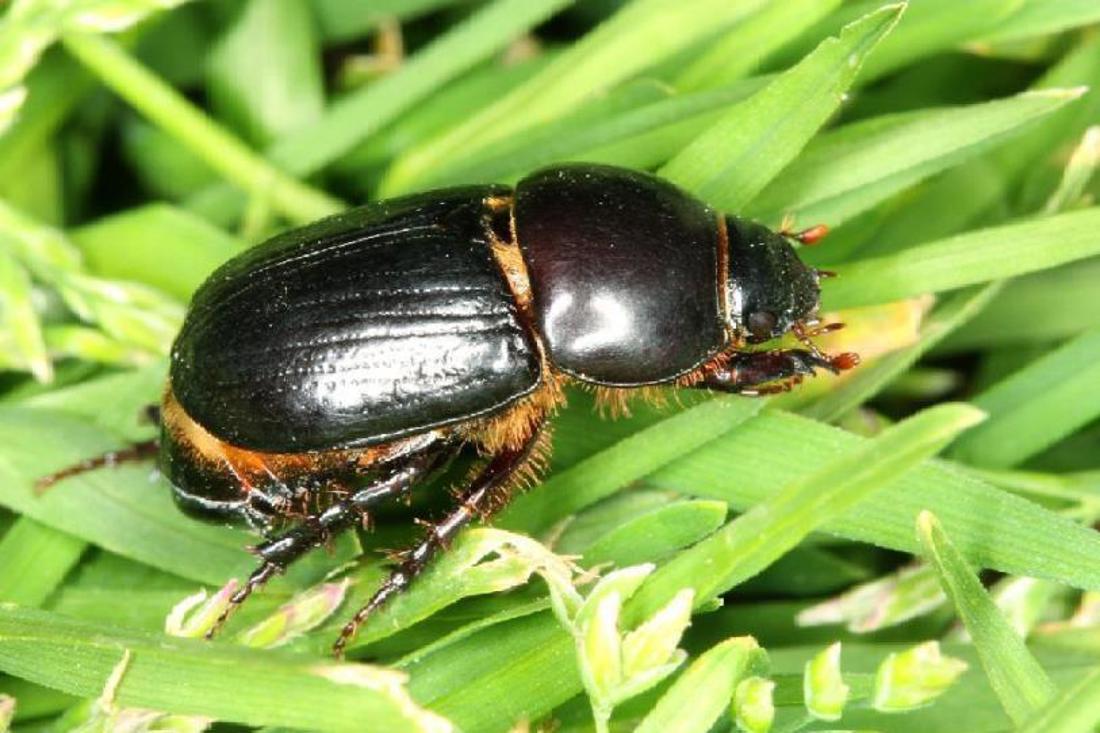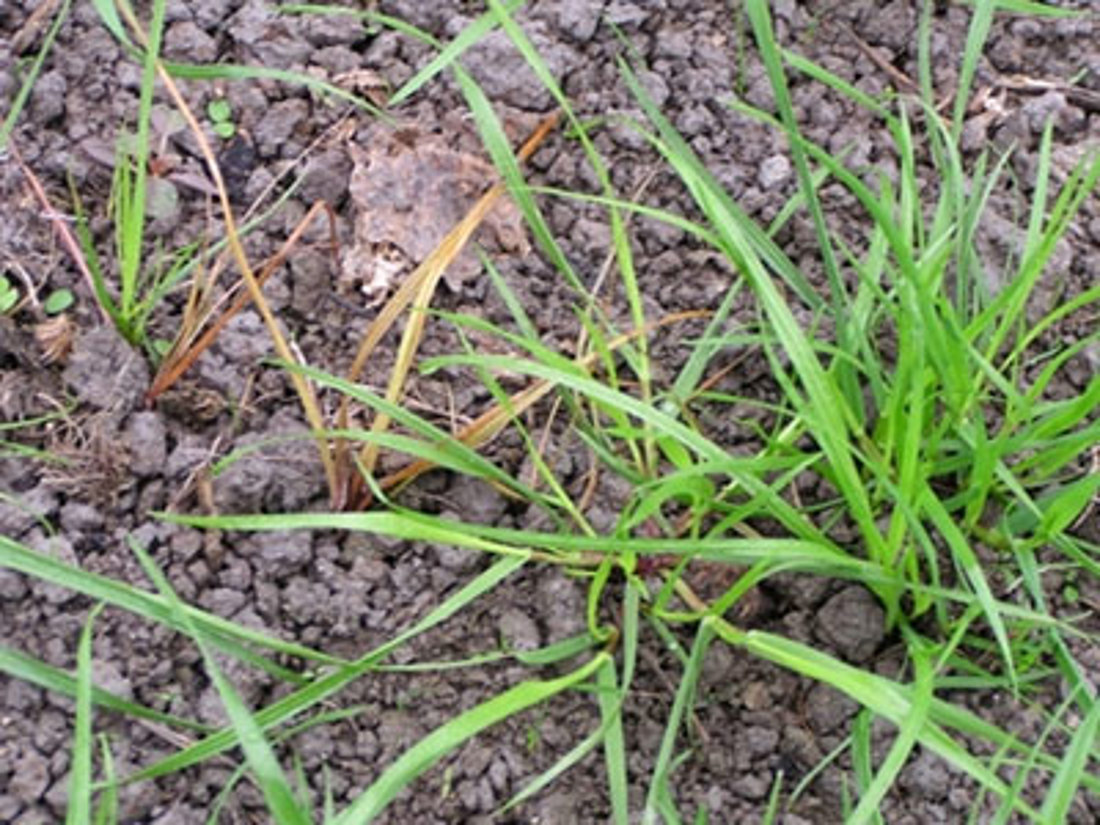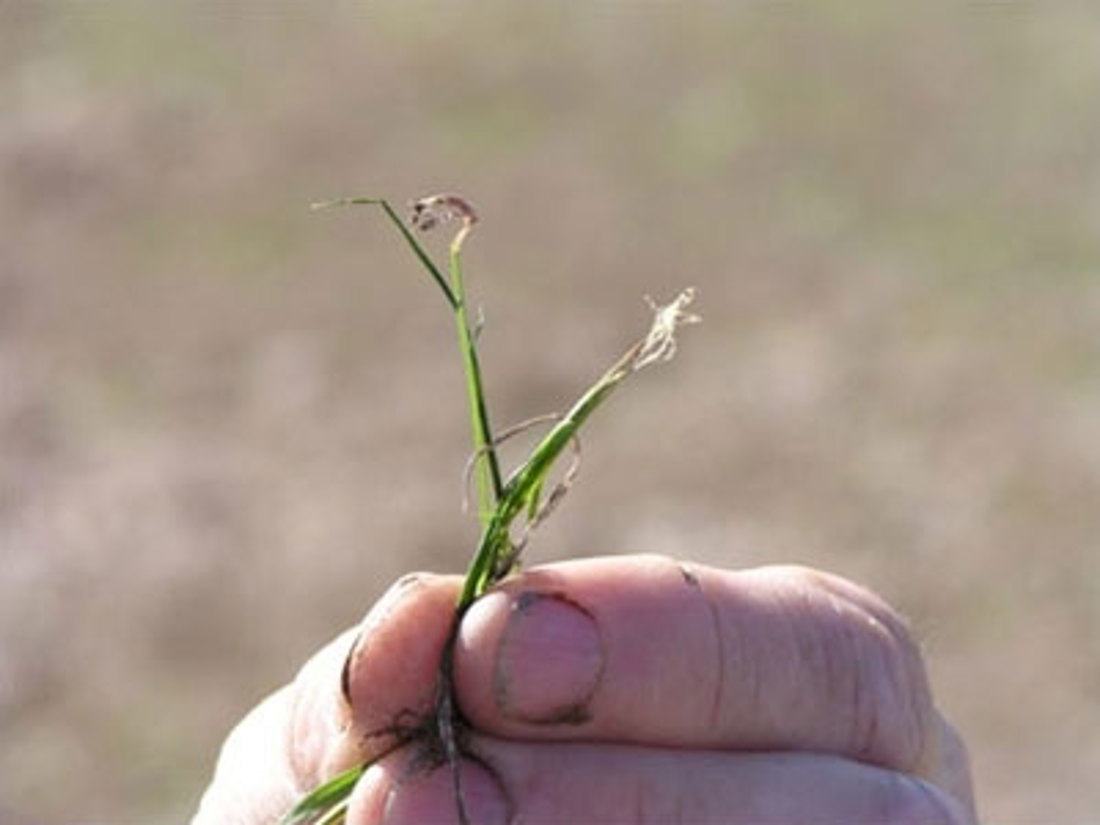Black Beetle
1 min read
Black beetle is a pest found in warm regions of the upper North Island, especially on light or peat soils. They can cause significant pasture damage. Adults damage new autumn-sown pastures by chewing the base of emerging ryegrass, leading to patchy growth. Larvae feed on plant roots from December to March, which can result in patchy ryegrass death, especially in dry summers when their numbers are high. If you're farming in affected areas, always use insecticide-treated seed when sowing new pastures. Opt for ryegrass varieties containing AR37 or NEA2 endophytes to make the grass more resistant to these beetles. Seek advice from your local seed merchant.

Black Beetle adult.
Black beetle (Heteronychus arator) is a pest in the upper North Island, often on light, free-draining soils, and on peat soils. Numbers vary widely from year to year, with root-feeding larvae capable of severe summer pasture damage, and adults able to significantly damage establishing grass in autumn.
Black beetles are only found in warm areas, including Northland, Northern Waikato, the coastal districts of Auckland, Bay of Plenty, Gisborne, and northern Taranaki. As they live in and on the soil, they are mainly found in free-draining, sandy, light ash or loam soils. The exception is peat soil, where they enjoy a good supply of soil organic matter as a food source.
Adult beetles can damage autumn sown new pasture, particularly if it is direct drilled. They chew through the base of emerging ryegrass plants, just above ground level, killing them. This leads to patchy ryegrass establishment.
Black beetle adults lay eggs in spring and early summer, the larvae develop over summer and pupate and emerge as adults in autumn. Black beetle larvae can be confused with grass grub. Larvae feed on plant roots during December - March and can cause patchy ryegrass death and plant pulling. Damage is most apparent in dry summers when larval numbers are above 40/m².
Late summer is when black beetle larvae cause the most damage. To confirm that black beetle is responsible for poor pasture persistence at this time:
The primary way to protect pastures from black beetle is to use grass cultivars with an endophyte that protects against adult feeding at the base of the stems. When sowing new pasture in affected areas always use insecticide treated seed. If using bare seed in the black beetle zone, you run the risk of complete ryegrass failure.
Sow ryegrass varieties with endophytes that ensure the new grass is more tolerant to black beetle, such as ryegrass with AR37 or NEA2 endophytes. Your local seed merchant should promote these practices.
During black beetle outbreaks, autumn dispersal flights of adults may occur, so all newly sown pastures, even those established after a break crop, are at risk.
Renewing a black beetle-damaged pasture will be more successful if insect numbers and endophyte-free grasses are reduced to low levels at pasture establishment. Use herbicides to reduce the populations of weed grasses favoured by black beetle. Cultivation may reduce the black beetle populations by physically damaging some larvae and pupae but has little effect on adult beetles.
Black beetle populations tend to decrease with increasing pH. The optimal soil pH for dairy pastures is 5.8-6.0. If you have black beetle-prone soils, you should target pH 6.0.


Now’s the perfect time to check in, plan, and set up for a strong season. We’ve pulled together smart tips and tools to help you stay ahead all winter long.
Whether you prefer to read, listen, or download handy guides, we’ve got you covered with trusted tools to support your journey every step of the way.